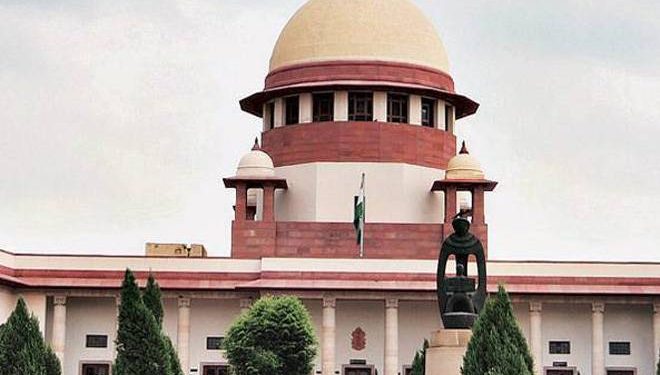New Delhi: With the reopening of the Supreme Court after the winter vacation Monday all eyes will be on the adjudication of contentious issues including controversial Citizenship Amendment Act (CAA) and abrogation of provisions of Article 370 of the Constitution.
The year 2020 will also witness the apex court constituting a seven-judge Constitution bench to examine the issue of entry of women of all ages into the hill shrine of historic Sabarimala temple, which was referred by a five-judge bench for fixing parameters to deal with alleged discrimination against Muslim and Parsi women.
The first working day of 2020 is also likely to have a mention of the petition filed by Tata Sons Private Limited (TSPL) challenging the December 18 decision of NCLAT restoring Cyrus Mistry as the executive chairman of the group and saying the verdict had ‘undermined corporate democracy’ and the ‘rights’ of its board of directors.
The top court will also take up the contentious issue of whether the creamy layer concept should apply to Scheduled Castes and Scheduled Tribes while giving them reservation in promotions.
In December 2019, the Centre had urged the Supreme Court to refer its 2018 verdict excluding the creamy layer within the SC/ST community from reservation benefits to a seven-judge bench for a review.
The apex court will keep an eye on air pollution matter in which the court has been passing slew of directions from time to time.
A five-judge Constitution bench headed by Justice NV Ramana is likely to resume hearing January 21 on a batch of petitions challenging Centre’s decision to abrogate provisions of Article 370, which gave special status to the erstwhile state of Jammu and Kashmir.
The top court had December 12 indicated that it may consider the question of referring the issue of challenge to the abrogation of provisions of Article 370, to a larger seven-judge bench after hearing the preliminary submission of all the parties.
The very next day January 22, a bench headed by Chief Justice SA Bobde, is scheduled to hear a batch of petitions challenging the constitutional validity of the amended Citizenship Act, which seeks to grant citizenship to non-Muslim migrants belonging to Hindu, Sikh, Buddhist, Christian, Jain and Parsi communities who came to the country from Pakistan, Bangladesh and Afghanistan on or before December 31, 2014.
The top court on December 18, while agreeing to examine the issue, had issued notice to the Centre and sought its response by the second week of January.
PTI






































